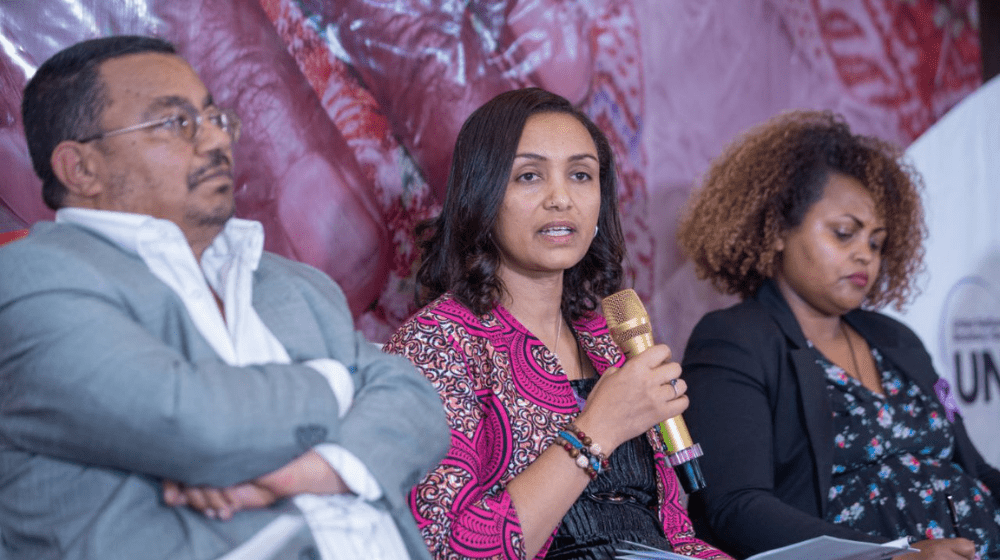Lack of data and information on gender-based violence in Ethiopia hinders efforts to provide comprehensive health, psychosocial and legal support for GBV survivors and prevent perpetrators from further violence. In humanitarian settings, inadequate coordination among stakeholders was also cited as a challenge for reaching survivors with the necessary support.
This was highlighted during a high-level panel discussion organized by UNFPA on the rights of GBV survivors to get essential services in both development and humanitarian settings. As part of the 16 Days of Activism against Gender-based Violence, the discussion was organized on December 12, 2022, to provide stakeholders with a forum to discuss challenges and the way forward in GBV service provision.
Christine Mwanukuzi-Kwayu, UNFPA Deputy Representative, said in her welcoming remarks that ending GBV requires a strong multi-sectoral partnership and coordination among a wide range of partners. "We are engaged in multi-sectoral partnerships to support interventions through policy support, prevention programming, and provision of response services. At the core of UNFPA’s approach is the right to safety, confidentiality, non-discrimination, and protection for all survivors," she said.
Tisge Tadele, Chief Executive officer at the Ministry of Women and Social Affairs (MoWSA) said that the government of Ethiopia acknowledges GBV as a fundamental human rights violation hindering the development of the country. “Considering the high prevalence of the problem, we recognize the gaps and our limited capacity in providing services. Scaling up is within our plan. The challenge includes a lack of data and statistics about GBV, especially on the perpetrators of violence, who remain anonymous".
Tsige said the government is working on a national sex offenders’ registry system.
Panelists from the Ministry of Women and Social Affairs, the Ministry of Health, the Ethiopian Human Rights Commission, and the Ethiopian Women Lawyers Association made interventions in the panel discussion on the theme chosen for the panel discussion.
The panel agreed to step up service delivery, recognizing that support and care for GBV survivors is a human right. Smooth coordination among stakeholders, and investing in data collection and analysis play a significant role in mobilizing resources.
In addition to health and psychosocial support, panelists believe survivors' right to justice is overlooked. ''Access to justice includes the right to truth, reparation, and compensation, which are elements of comprehensive service for survivors,'' said Lamrot Fikre, Director of Women and Children's Rights, at the Ethiopia Human Rights Commission.
The panel emphasized the responsibilities of the Ministry of Justice, relevant government agencies, human rights organizations, and stakeholders to improve law enforcement awareness.


